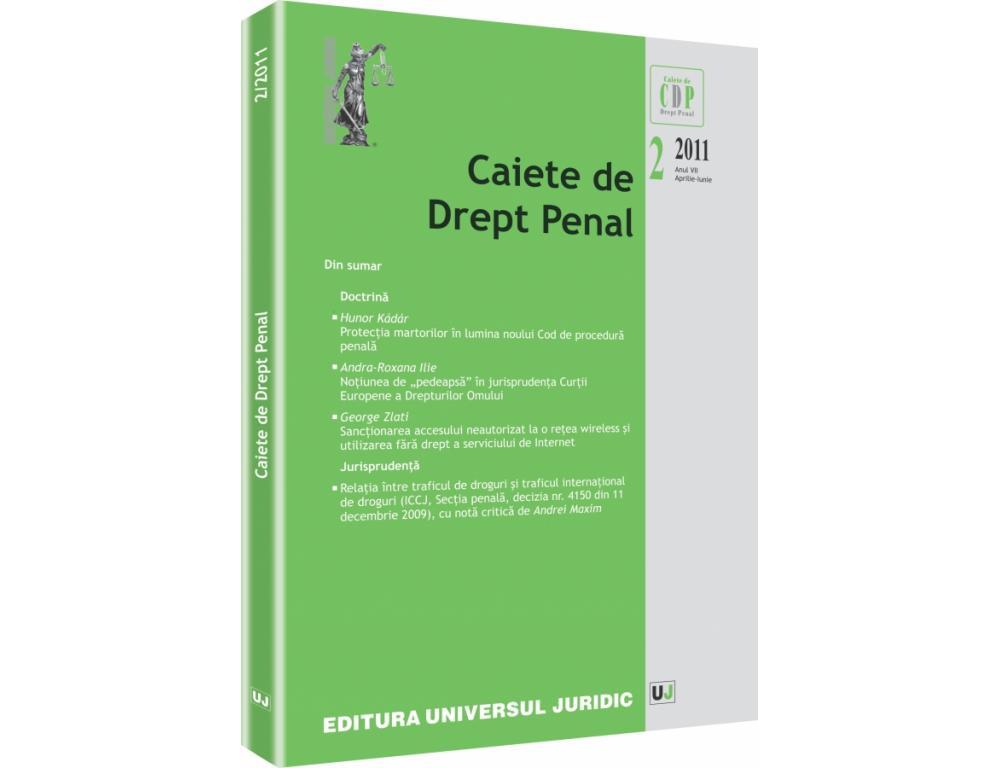Notiunea de „pedeapsa” în jurisprudenta Curtii Europene a Drepturilor Omului
The Punishment as reflected by the European Court of Human Rights Case Law
Author(s): Andra Roxana IlieSubject(s): Law, Constitution, Jurisprudence, Civil Law
Published by: Universul Juridic
Keywords: punishments; international protection of human rights; fundamental rights; European Convention on Human Rights; articles 2; 3 and 7; European Court of Human Rights case law;
Summary/Abstract: It is widely recognized that the right to apply punishments in order to penalize the criminal offences perpetrated by individuals belongs, normally, to the State. However, the creation of a system for the international protection of human rights determined major changes with respect to punishments. The international protection of human rights has a large range of sources, institutions and international procedures aiming to guarantee the fundamental rights of each individual. Among these sources, the Convention for the Protection of Human Rights and Fundamental Freedoms has a major role and the case law developed by the European Court of Human Rights led to another perspective on what punishing means. The Convention contains some references to the term „punishment” in articles 2, 3 and 7. Moreover, it must be noticed that there are many other articles of the European Convention which are relevant for the qualification of a measure as punishment (for example, art. 4, 8 or 10). Also, the European Court had the occasion to determine the criteria based on which a certain measure can be considered a punishment. Many times, the Court reached the conclusion that a measure which the national systems did not consider a punishment represented actually such sanction based on its own criteria. The punishment thus represents a special signification, being an autonomous notion. The sense of this notion is determined in the study by analyzing the articles of the Conventions which directly refer to the term „punishment”, observing that all such articles provide inviolabilities, in order to see the implications of this notion with respect to procedural rights. The analysis shows the criteria based on which a measure can be considered a punishment. Thus, it must first be determined if the said measure was applied following a criminal offence and then it must be taken into consideration the nature and the scope of the measure (preventive, repressive or reparatory), its qualification by the national system, its gravity etc. The main conclusion of the study is that, irrespective of the qualification by the national system, the European Court can decide that certain measures are actually punishments. In this context, it must be mentioned that the qualification of a measure as a punishment led sometimes to the elimination of certain sanctions from the contraventions area (for instance, the prison for contraventions in Romania) or to the creation of some sanctions by the criminal law. Also, it must be underlined that the outline of this autonomous notion can be related to the admission, in many European States, of the criminal liability of corporations, taking into account that some of the sanctions which can be applied to such entities (i.e. the winding up), initially provided by some States as safety measures, are in fact punishments based on the criteria created by the European Court of Human Rights based on the Convention.
Journal: Caiete de drept penal
- Issue Year: 2011
- Issue No: 02
- Page Range: 62-86
- Page Count: 25
- Language: Romanian
- Content File-PDF

